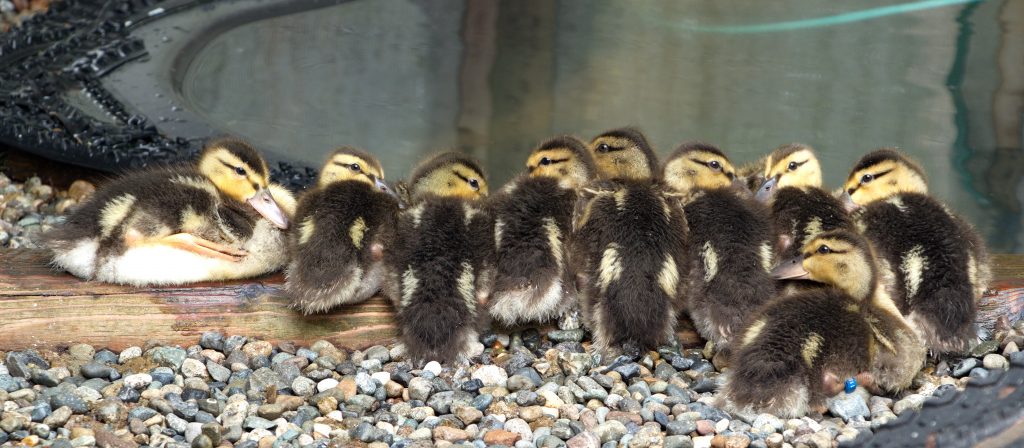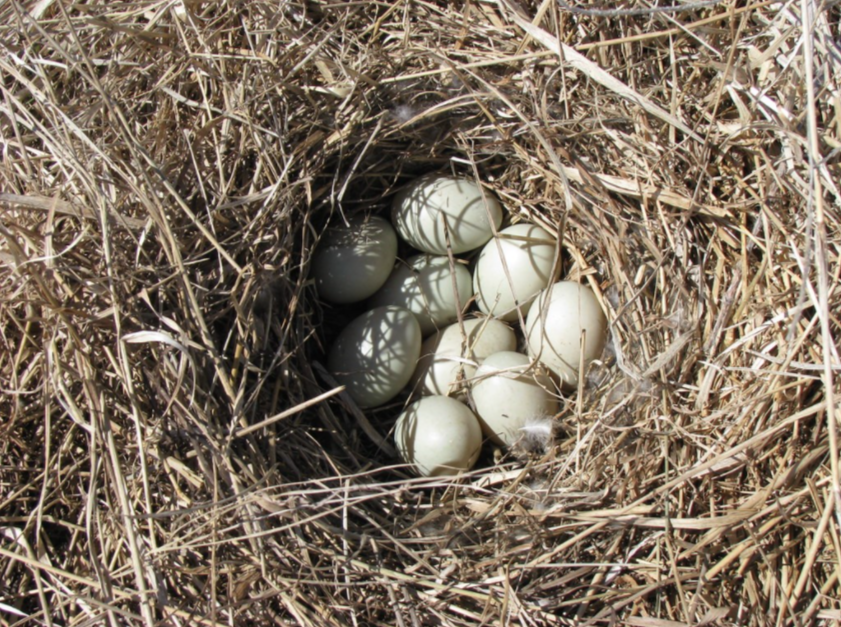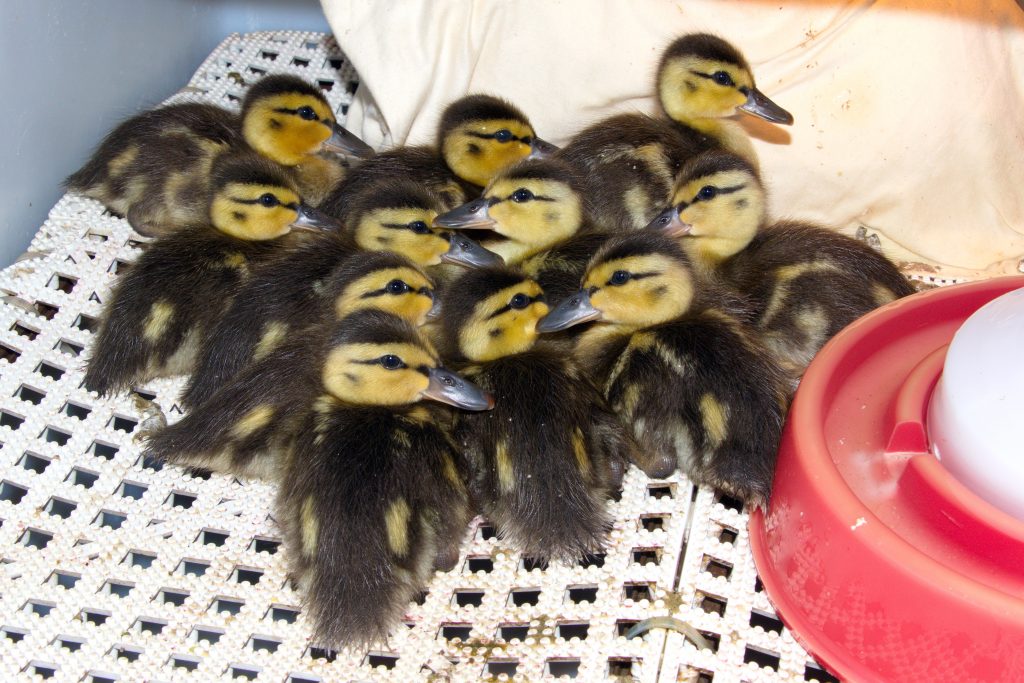Support Us
Since 1979 more than 140,000 animals have been treated by Wildlife Rescue.
Thanks to the support of individuals like you, Wildlife Rescue can provide a lifeline for animals in distress.
Unlike songbirds, baby ducks and geese leave the nest almost immediately after birth, and will follow their mom closely. They already know how to find their own food, but still need their families for warmth and protection. Baby ducks and geese can go in water briefly, but because their feathers are not yet waterproof, they can quickly become hypothermic (chilled) if they remain in the water more than a few minutes. If you find a baby duck or goose alone, it is almost certainly just separated from its family.

If you find a Mallard nest with only a few eggs in it, allow the mother to finish laying all of her eggs (typically 12-13 total). Mallards lay one egg a day, so this will take up to 12-13 days. She will not start incubating her eggs (laying on them) until all eggs are laid, so finding a nest with only three or four eggs and no mother duck does not mean that the nest is abandoned.
If something does happen to the unfinished clutch of eggs, Mallard hens will make another attempt until they raise a successful brood.
Once all eggs are laid, she will rarely leave the nest apart from short breaks to feed and stretch her legs. About 28 days later the eggs hatch together. This takes about 24 hours.
Mallard eggs are unmarked creamy to grayish or greenish buff. There are typically 12-13 eggs per clutch.

Photo Credit: USFWS: https://www.flickr.com/photos/usfwsmtnprairie/11856952175
Once hatched, the ducklings will stay in the nest for at least 10 hours while they dry and get used to using their legs. Then, usually in the early morning, the female leads them to water. Bad weather may delay this, but the sooner the ducklings get to water to feed, the better their chances of survival. They cannot survive without their mother, and take 50-60 days before they fledge and become independent.

The mother duck may have been spooked away and has not returned. Keep the babies protected and wait from a nearby location to see if the mother returns. She will usually return within a half-hour if the area has become quiet again and the threat is gone. She is very protective of her babies and will not go far or stay away for very long. If the mother does not return to her babies within 1-hour, the ducklings should be rescued and brought to Wildlife Rescue.
Hypothermia will result if babies are in a pool for more than a few minutes. Mother will stay in the pool with them (to protect them) if they cannot get out and it appears as if she is voluntarily allowing them to swim. She will exit the pool as soon as the babies are given a means to get out of the water. Be sure to screen skimmer or filter openings that may trap helpless ducklings with suction.
Pool covers are an effective control for uninvited pool guests. They are also safer for other wildlife (baby birds) that may fall into it. Other measure to discourage ducks from pools include; floating alligators or beach balls (they must be moving continuously); sensor sprinklers or sprayers strategically placed; monofilament barriers (installed by professionals); music, radio or strobe lights activated by sensors. Some professional companies specialize in exclusion devices for wildlife.
Mallard ducks are federally protected, so moving the nest is illegal without a permit. It is unlawful for any person to capture, possess or relocate ducks (and other migratory birds) except by permit. We encourage you to let the ducks finish nesting. After the ducklings hatch and the family moves on, you can put up deterrents to prevent them from nesting there again.
Ducklings/ goslings can safely jump to the ground from buildings that are less than 2 stories high and if there is no barrier/edge higher than 12cm. If a family of ducks have nested on a building that is taller than 2 stories and/or there is a barrier higher than 12 cm it is best to contact our Support Centre. Wildlife Rescue has trained volunteers that can help with these rescues. Mother Mallards may not return to their ducklings if stressed so it is important to contact Wildlife Rescue first before attempting capture.
It’s normal for a female mallard not to eat for the entire incubation period – she fattens up beforehand to prepare. Leaving food or water out for the duck will only attract predators like raccoons or opossums, putting the nest in danger. Once the ducklings have hatched, feeding them unnatural food like bread can cause problems with their growing bones and feathers.
Always consider human safety first– never put yourself or other people in danger to help a family of ducks cross a road. You can help by waving at drivers to alert them to the birds. Ask passersby with pets or children to keep back. Keep a safe distance, and try to gently steer the birds in the direction of the closest pond, stream, river, or lake.
It may seem like a good idea in these situations to try to catch the family and move them to a safe spot, but this risks scaring off the mother and scattering the babies.
Remember that crossing roads is a fact of life for urban wild animals, and one of many skills babies need to learn from their parents.
Some rescues are best left to the experts, and duck families on multi-lane highways with barriers and heavy traffic may need help. Please contact the non-emergency police line to ask for assistance.